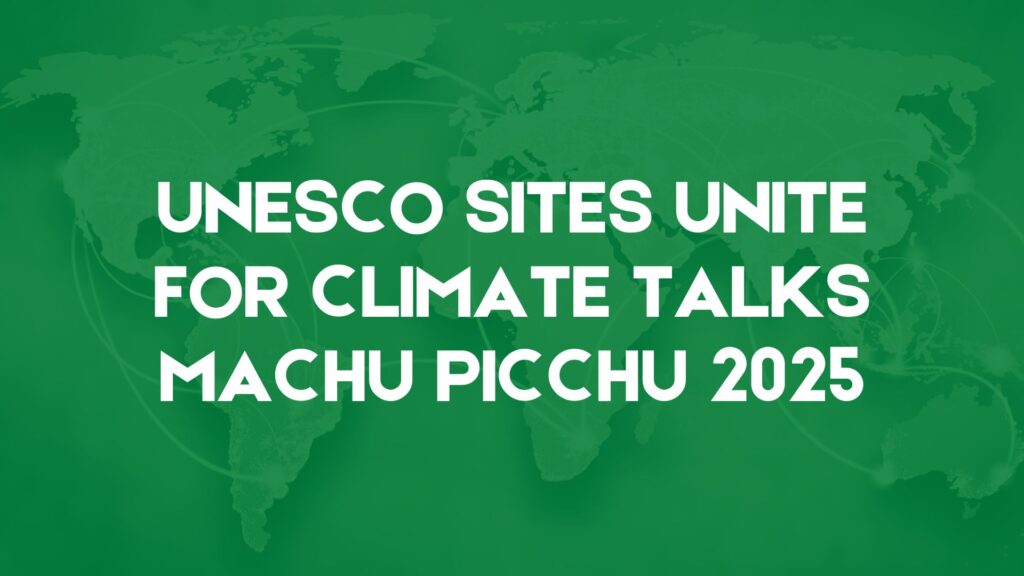COP30 in Brazil: The Moment to Deliver on Climate Promises
The Conference of the Parties (COP) brings together governments, international organizations, and non-state actors to assess global progress and negotiate collective measures under the Paris Climate Agreement The 30th United Nations Climate Change Conference (COP30) begins today in Belém do Pará and, for the first time, the opening takes place on schedule. After intense negotiations over the weekend, the agenda was confirmed, signaling diplomatic maturity and a renewed sense of collective purpose. Three central themes will guide the coming days: At the heart of these discussions lies a key challenge: multilevel governance how to turn political commitments into mechanisms that are executable, measurable, and comparable across countries and sectors. Ten Years After Paris: From Ambition to Action The Conference of the Parties (COP) brings together governments, international organizations, and non-state actors to assess global progress and negotiate collective measures under the Paris Climate Agreement Ten years after the signing of that agreement, experience shows that the transition toward a low-emission economy is no longer a utopia but a strategic priority driving a global race for innovation, productivity, and competitiveness. However, this race advances unevenly largely reflecting the typical dynamics of any (r)evolutionary industrial shift: a struggle between those striving for a future powered by new opportunities and technologies, and those seeking to preserve the status quo, delaying technological and sociocultural change as long as possible to avoid transformation. Beyond the motives or interests, strategic or otherwise, the goals and commitments assumed by different sectors of society have not achieved the necessary level of progress, and the results remain far from those originally pledged.. The Urgent Reality of a Warming Planet According to the IPCC, the planet has already warmed by approximately 1.1°C above pre-industrial levels, and current projections indicate that keeping warming below the 1.5°C threshold set by the Paris Agreement will be difficult before mid-century. Recent data from the Copernicus Climate Change Service (C3S) further underscores this urgency. These data confirm that the current framework of regulatory and voluntary commitments — along with existing performance systems is insufficient when faced with the speed and scale of the climate challenge. The gap between promises and real implementation often translated into greenwashing has, in many cases, become the main obstacle to achieving an effective transition. At Green Initiative, we see this credibility gap as the defining test of our time. Climate action is no longer about announcing goals, but about demonstrating verifiable progress — where measurement, certification, and transparency become the true language of trust. COP30: Brazil Takes the Lead in Turning Words into Results In this context, COP30 — to be held in Belém do Pará, Brazil, from 10 to 21 November 2025 — assumes a decisive role by promoting a shift in approach: complementing statements and ambitions, which remain essential, with concrete and pragmatic action, which is now urgent. As the host nation, Brazil intends to place forests and nature-based solutions at the heart of the global debate, highlighting the Amazon as a living symbol of both vulnerability and opportunity in the fight against climate change. “A successful COP30 will depend on the ability to translate ambition into credible delivery.” Companies and governments alike are expected to strengthen climate disclosure and performance standards, aligning them with national regulatory frameworks — especially in emerging markets — and demonstrating traceable, verifiable progress across their value chains. At the same time, the expansion of climate finance, particularly through blended instruments and public-private investment vehicles, will be key to mobilizing capital toward sectors vital for decarbonization and resilience. Financing Adaptation and the Just Transition The conversation will also broaden to include adaptation financing, a critical gap as global needs — estimated at over US$ 300 billion per year by 2035 — far exceed current commitments. In parallel, energy transition debates are expected to gain momentum, with biofuels, renewable energy, and infrastructure modernization taking center stage. The principle of a “just transition” will continue to gain prominence, integrating social equity, workforce adaptation, and community engagement as fundamental components of climate credibility. The Private Sector: From Ideology to Competitiveness For the private sector which increasingly recognizes that the climate agenda extends beyond ideology COP30 should reinforce the logic of competitiveness and the advantages of early movers: those who anticipate market shifts, invest in resilience, and position their organizations as leaders in the emerging low-carbon economy. At Green Initiative, we have witnessed how companies and destinations that embed transparency into their climate journey gain both reputation and resilience. The capacity to measure, verify, and communicate progress is no longer a differentiator — it is a prerequisite for participation in the next economy. Green Initiative: Bridging Ambition and Impact At Green Initiative, we share this conviction. Through our Climate Certification Programs, Climate Performance Platform, and strategic advisory services, we help organizations and destinations: By turning commitments into measurable, verifiable, and transparent climate action, we advance a climate- and nature-positive global economy — one where progress and prosperity align with the protection of our planet. This article was written by Karla de Melo from the Green Initiative Team. Related Reading
COP30 in Brazil: The Moment to Deliver on Climate Promises Read More »







